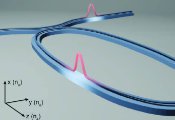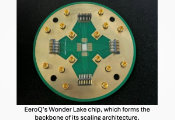Southampton Receives Millions to Lead Britain’s Quantum Revolution and Support National Defence
Southampton has been awarded millions of pounds to launch two research centres that will work to develop the future of quantum computing and boost UK defence expertise.
Around £32million will be contributed by the government, industry giants and small and medium sized enterprises for the new centres at the University of Southampton.
The University will also be providing some matching support.
The centres intend to train PhD students to increase the talent pool of skilled innovators needed for Britain’s quantum technology and defence sectors.
Both multimillion-pound investments were announced by the Engineering and Physical Sciences Research Council (EPSRC).
The £18million EPSRC-funded Centre for Doctoral Training in Quantum Technology Engineering will receive funding from tech businesses including Microsoft, QinetiQ, Riverlane, and Oxford Ionics.
Its director Dr Tim Freegarde, from the University of Southampton, said the centre will be a crucial part government plans to transform Britain into a quantum-enabled economy by 2033.
He added: “Within 10 to twenty years, quantum technologies will be affecting our lives in diverse ways from faster mobile data and banking security to GPS-free navigation and locating pipes beneath the road.
"Our training centre will develop a new generation of graduates with the knowledge, skills and awareness needed to engineer new quantum technologies and put the UK at the forefront of the world’s quantum industry."
The two new centres opening in Southampton are among 65 announced by UK Research and Innovation (UKRI) to train 4,000 PhD students across the next 10 years.
The Centre for Complex Integrated Systems for Defence and Security will train the next generation of leaders and experts needed to support UK safety and resilience.
The £12.5million centre will receive funding from EPSRC, the Ministry of Defence and numerous industry partners.
It will provide a unique approach to doctoral training bringing together graduates and former military and policing personnel, said centre director Professor Jordan Cheer from the University of Southampton.
He added: “A strong defence and security industry is vital for the UK, and our centre will train a new generation who will work to keep Britain’s future safe.
"We are opening places to graduates, current sector employers and those transitioning from serving military or policing roles to drive forward research that will develop the complex technologies needed for the modern defence and security of our country.”
Experts from the University of Southampton have also been awarded funding for two additional doctoral training centres – one on mathematics for the future climate, hosted at Imperial College London, and another on acoustics at the University of Salford.




































